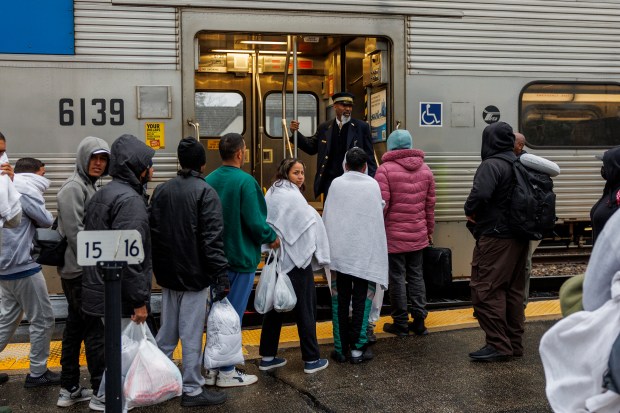Amazon.com Inc. said Tuesday it never planned to widely display the cost of President Donald Trump’s tariffs on products after the White House blasted the reported move.
“The team that runs our ultra low cost Amazon Haul store has considered the idea of listing import charges on certain products,” the company said in a statement. “Teams discuss ideas all the time. This was never a consideration for the main Amazon site and nothing has been implemented on any Amazon properties.”
The White House seized on a brief Punchbowl News report that the e-commerce giant would “soon” begin displaying the cost of U.S. tariffs on individual products next to the total listed price. White House Press Secretary Karoline Leavitt blasted the purported plans as “a hostile and political act.”
“Why didn’t Amazon do this when the Biden administration hiked inflation to the highest level in 40 years?” Leavitt asked reporters at a briefing. She said she had spoken to Trump about the report and went on to criticize Amazon’s compliance with censorship demands by the Chinese government.
Amazon shares fell as much as 2.1% at the open of trading in New York after the White House’s comments, before paring losses. The firm is set to report earnings after the bell on Thursday with its stock down more than 20% from a February record high.
Companies like Temu and fast-fashion giant Shein Group Ltd. are bracing for a 120% tariff on many of their products due to the US government’s decision to end the “de minimis” exemption for small packages from mainland China and Hong Kong. Some Amazon shipments also qualify for that exemption, but the company also buys goods in bulk, which it ships to its U.S. warehouses.
Amazon launched its Haul service — which ships items directly from sellers, including in China — last year, a response to the rise of Temu, the low-cost shopping app that gained traction despite long shipping times. Temu has thrived in part thanks to duty-free shipments on goods valued under $800. Amazon’s prospective import charge disclosure was related to the end of that de minimis exemption, not the White House’s tariff plans, according to a person familiar with the matter.
Exporters in recent years had capitalized on the exemption, which allowed goods valued at under $800 to enter the U.S. without tariffs or customs duties.
Leavitt declined to answer when asked if the move had strained the relationship between the president and Amazon founder Jeff Bezos, who has sought to curry favor with Trump in recent months. Bezos and Trump frequently clashed during the president’s first term over the billionaire’s ownership of the Washington Post.
“I will not speak to the president’s relationships with Jeff Bezos,” Leavitt said.
Treasury Secretary Scott Bessent, who attended the press briefing, said any move to highlight tariffs was unfair when the costs of policies implemented by other administrations — including regulations — weren’t broken out.
“The big tax on consumers that goes unnoticed is deregulation or regulation, and we are deregulating and bringing that down,” Bessent said. “So you know, from a household income point of view, we would expect real purchasing increases that we’ve seen over the first 100 days, and we would expect that to accelerate.”
A CNN poll released this week showed 59% of the public believe Trump’s policies have made the economy worse, with six in 10 believing his efforts have increased their cost of living. Nearly seven in 10 of survey respondents say they believe an economic recession is somewhat likely in the next year.



